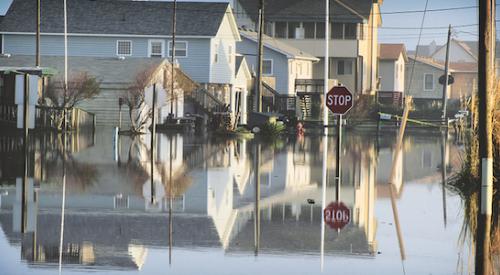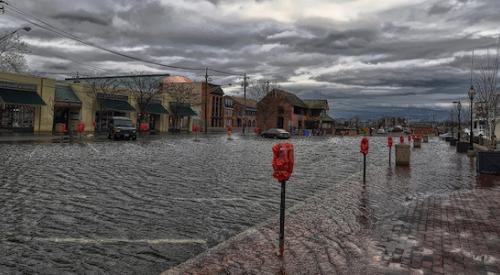Along the Atlantic coast, including South Florida, New Jersey, and South Carolina, the areas that flood the most have had slower real estate sales during the last five years. This doesn’t seem to be a coincidence.
The New York Times explored how the housing market will be affected by rising sea levels over the coming years and decades.
Some analysts say the economic impact of a collapse in the waterfront property market could surpass that of the bursting dot-com and real estate bubbles of 2000 and 2008. The fallout would be felt by property owners, developers, real estate lenders and the financial institutions that bundle and resell mortgages.
Sean Becketti, the chief economist for Freddie Mac, wrote earlier this year that rising sea levels and storm surges will cause people along the coast to ditch their mortgages and move inward, which could ignite another housing meltdown.
Coastal cities will have to build and adapt to more frequent, and more intense, tidal floods. States will have to pass legislation that requires real estate agents to disclose flood risks. Banks and insurers will have to adapt without raising prices too much, which would risk squeezing middle-class and lower-income buyers out of the market.












